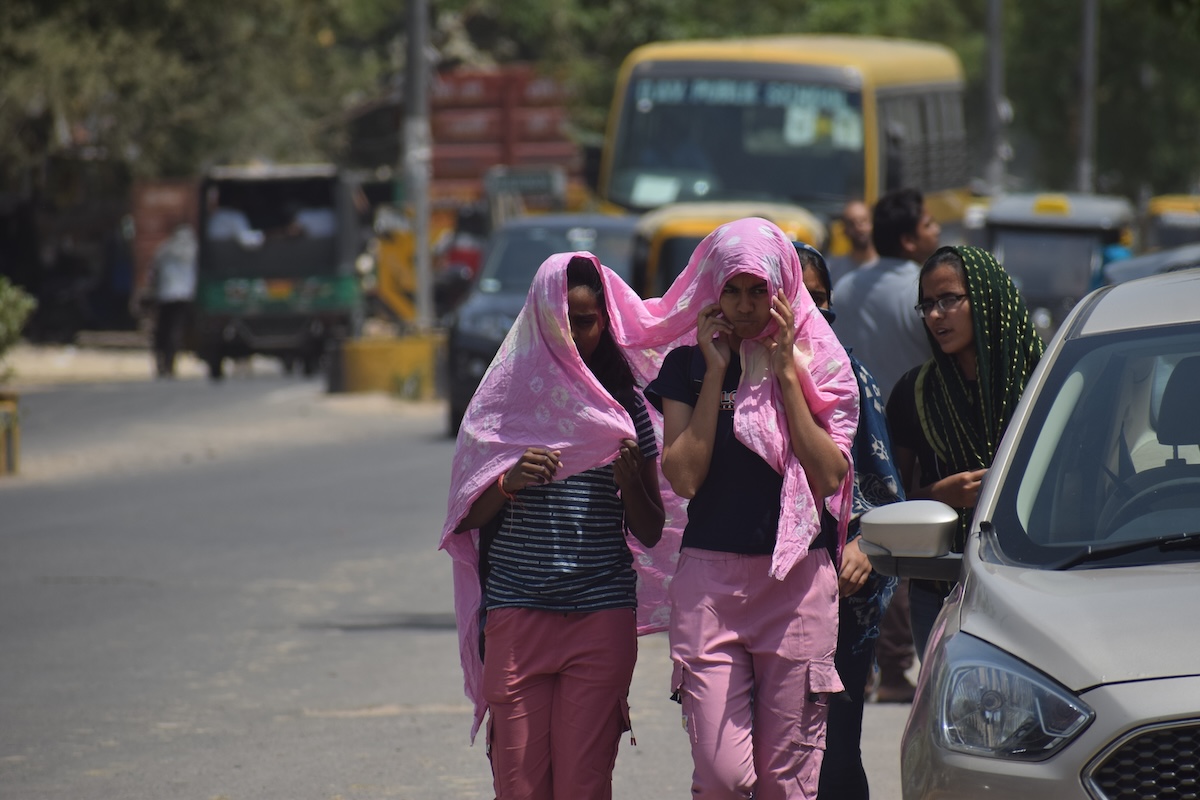Greetings, ImpactAlpha readers!
Featured: ImpactAlpha Original
North to the Future: ‘Arctic tech’ entrepreneurs help Alaska adapt to climate change. Alaska’s supply chain was precarious even before melting permafrost and Arctic ice put the state on the front lines of climate change. Now, Alaska is warming twice as fast as the rest of the U.S. Under the banner of “arctic tech,” an emerging entrepreneurial ecosystem is generating solutions focused on the production and delivery of sustainable energy, food and water in extreme conditions.
Journalist Amy Cortese dropped in on demo day (at a microbrewery, of course) for Launch Alaska, a two-year-old startup accelerator in Anchorage that has emphasized energy solutions. She checked out BoxPower, which makes rugged solar microgrids packaged in 20-foot shipping containers and is installing three of its units to replace diesel in the village of Buckland (population 416) in northwest Alaska. Carter Wind Energy’s mid-sized wind turbines are designed for remote, extreme environment locations. Containerized growing systems from Anchorage-based VH Hydroponics are intended to work in conditions down to 60-degrees below zero. 60 Hertzmakes software to help manage remote microgrids. “We don’t have a huge market or a ton of people here,” says Launch Alaska’s Isaac Vanderburg. “The thing that we have to offer to the world is that if you can make it here, you can make it anywhere.”
Read “North to the Future: ‘Arctic tech’ entrepreneurs help Alaska adapt to climate change,” by Amy Cortese on ImpactAlpha.
Dealflow: Follow the Money
Village Enterprise raises $3.5 million poverty-alleviation bond in East Africa. The Village Enterprise Development Impact Bond seeks to improve livelihoods and incomes for up to 13,800 impoverished rural Kenyans and Ugandans by 2020. Nine impact investors fronted the capital, including Delta Fund and the Bridges Impact Foundation. The outcome funders are USAID and DFID, which will pay out as much as $4.28 million if income targets are met. Get the details.
OPIC backs Tugende’s lease-to-own motorcycle financing Uganda. The startup lender has helped 12,000 motorcycle taxi, or “boda boda,” drivers finance the purchase of motorcycles to raise their incomes through asset-ownership. “Tugende” means “let’s go.” A $5 million loan from the Overseas Private Investment Corp. will help Tugende finance more driver-owners. Read on.
- Listen to Tugende’s Michael Wilkerson on ImpactAlpha’s Returns on Investment podcast, “Financing Uganda’s Boda Bodas to Boost Drivers’ Livelihoods.”
Blue Orchard’s microfinance fund targets Europe’s retail investors. The Zurich-based impact investment firm’s liquid microfinance fund can be made available to individual investors across Europe. BlueOrchard has made debt investments in microfinance institutions for up to three years at a time out of its flagship microfinance fund. Since 2001, it has loaned $5 billion to 350 institutions supporting more than 37 million micro-entrepreneurs. More.
Signals: Ahead of the Curve
Youth, tech and entrepreneurship drive impact investing’s growth in Southeast Asia. A tech-connected and youthful population with a growing affinity for entrepreneurship is making Southeast Asia an emerging hotspot for impact investing. About 60 impact investors have placed about $900 million into 225 direct deals in the region over the last decade, mostly in the last five years, according to The Landscape for Impact Investing in Southeast Asia from the Global Impact Investing Network. International Finance Corp. leads about a dozen development finance institutions that have invested more than 10 times that amount in nearly 300 direct deals.
- Concentrated capital. Cambodia, with a robust microfinance sector, has attracted about $400 million from private impact investors. That’s more than Indonesia, the Philippines, and Vietnam combined.
- Gender smart. Five private impact investors with an explicit gender-lens have made about 30 deals totaling $40 million. See, “Australia’s bet on women entrepreneurs in Southeast Asia.”
- ImpactAlpha dealflow. Impact Terra raised $3 million in grant capital to provide ag data to Myanmar farmers. Filipino billionaire John Gokongwei and fintech startup Oriente committed $200 million to Cashalo, which uses non-traditional credit scoring methods to make loans to individuals. Last week, Insitor Impact Asia Fund, a Phnom Penh-based impact investor, backed SolarHome to expand in Myanmar, Cambodia and Indonesia.
Read, “Youth, tech and entrepreneurship drive impact investing’s growth in Southeast Asia,” by Dennis Price on ImpactAlpha.
Agents of Impact: Follow the Talent
Media company Upworthy/GOOD slashed at least 31 employees, including almost the entire editorial team… The W.K. Kellogg Foundation seeks a mission investment manager… TEAMFund is looking for a chief operating officer to lead its global health initiative and a principal for its healthcare impact venture capital team.
— August 6, 2018.











